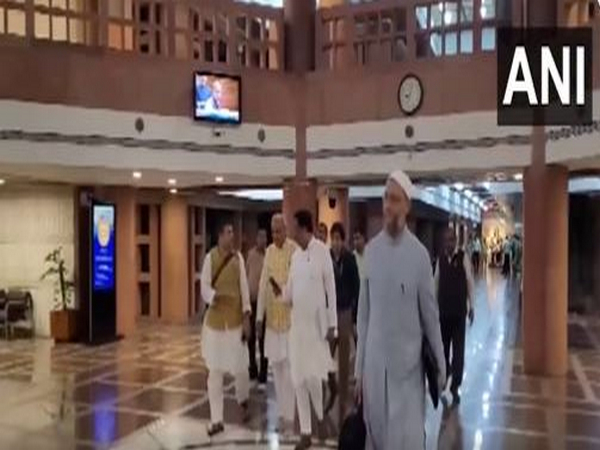Broad Support in Parliamentary Hearing for Waqf Amendment Bill 2024
The latest session of the Joint Parliamentary Committee on the Waqf (Amendment) Bill 2024 saw substantial backing from diverse groups, aiming to enhance Waqf property management in India. Stakeholders presented proposals, emphasizing transparency, accountability, and socio-economic upliftment.

- Country:
- India
By Nishant Ketu
The sixth meeting of the Joint Parliamentary Committee on the Waqf (Amendment) Bill 2024 held on Friday garnered widespread support from various stakeholders for enhancing the management and regulation of Waqf properties in India.
Key contributors to the session included the All India Sufi Sajjadanashin Council, Ajmer, Muslim Rashtriya Manch, Delhi, and Bharat First, Delhi. Syed Naseruddin Chishty, Chairman of the All India Sufi Sajjadanashin Council, highlighted the alleged discriminatory practices of the Waqf Board and called for shrine autonomy, spurring a heated debate.
The council also pointed out financial irregularities in Waqf fund utilization, while opposition MPs called for a detailed expenditure report. Emphasizing the bill's potential to prevent unlawful property grabs under Waqf's name, the council underlined court rulings supporting hereditary succession among Sajjadanashins and committed to providing necessary documents.
Sufi Shah Malang from Muslim Rashtriya Manch suggested forming a separate Auqaf Board for the Sufi Shah Malang community and included a demand for backward nomadic Muslim women's representation in Waqf institutions. Bharat First advocated for digitizing Waqf property records to boost transparency and prevent illegal encroachments.
The NGO stressed the need for independent financial audits and proposed a Central Waqf Tribunal for faster dispute resolution. They cited global models like Turkey, Malaysia, and Saudi Arabia, recommending modernized Waqf management integrated with national development plans.
The opposition raised concerns over the bill's removal of the 'Waqf by user' provision, the abolition of the Waqf Tribunal, and non-Muslim members' inclusion in the Central Waqf Council and State Waqf Boards, suggesting these alterations threaten Muslim autonomy.
The committee will submit its report to the Lok Sabha by the end of the first week of the next parliamentary session. It has received over 9 million suggestions via email so far. (ANI)
(With inputs from agencies.)
ALSO READ
Pregnant Woman's Assault Sparks Police Accountability Debate
Pentagon's Persistent Accountability Problem: Eighth Audit Failure
Pentagon Audit Woes Persist: A Battle for Financial Accountability
Opposition Leader Demands Accountability Over Messi Event Chaos in West Bengal
Zelenskiy Calls for Accountability for Russia's Aggression










